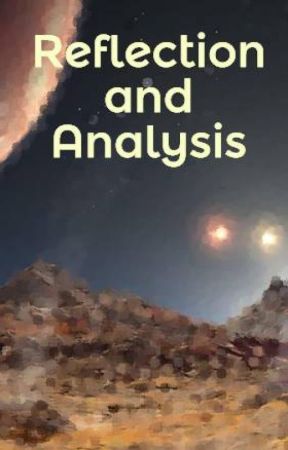I'd not expected to be writing a reflection on Molly's character, in particular the article I recently found, but as I looked for articles on an entirely different character - Ron Weasley - I happened across "Harry Potter and the Problematic Character That Everyone Loves to Pretend is Perfect" by Lydia Engel written on March 26, 2021.
I think part of the reason this article stands out to me is because the Google search that brought up this particular article was looking yet again to see how fans are reacting to Ron's selfish behaviors in the books, as I've yet to discover a satisfactory response regarding his behavior from the pro-Ron side. Instead, what I come across is an attempt to deflect and downplay some rather serious behavior.
However, I think one of the key incidents that has never set right for me, that made me eventually go back and examine his character as a whole, was the incident where Ron abandons Harry and Hermione in the final book.
This is downplayed with things like, "But he came back!" despite the fact he only came back because his older brother guilt-tripped him and "The Horocrux was so much worse for him," without any proof, the implication being that should be reason enough to forgive him when in reality, it's not, and he certainly shouldn't get the girl.
One of the big ones is this discussion of how the Horocrux revealed Ron's "supposed" inferiority complex. I put "supposed" in quotes because Ron's issue isn't actually "a consistent feeling of inadequacy." Now, I admit this is a direct quote from Wikipedia's article that I retrieved today, but here is a direct quote from WebMD that "an inferiority complex is characterised by constant feelings of inadequacy or insecurity in your daily life due to a belief that you are physically or mentally inferior to others, whether such a belief is based on a rational assessment or not."
In fact, let's compare Ron to Neville, an actual canon character with an actual inferiority complex. Both characters are faced with the same issue of having started Hogwarts with a wand handed down to them rather than receiving a brand new wand. Ron blames the wand before he even starts Hogwarts, treating it as yet another hand-me-down, but we know about this as soon as we meet Ron. Neville, on the other hand thinks the issue lies with himself and not the wand, but in contrast he actually does cherish the wand he's been given and doesn't feel he can "live up to it."
In other words, while Neville actually has an inferiority complex, the emotion Ron is dealing with is jealousy. True, the locket tosses out a bunch of buzzwords such as "least loved" and "second place." But they're just that, buzzwords.
In this particular case, Ron is the "least loved" of his siblings because Ginny is the girl Molly's mother always wanted, yet there isn't a single mention of any of Ron's male siblings despite the fact what the locket says should hold true for Ron's brothers. The words "second place" are also in reference to Hermione which in turn treats Hermione as some kind of prize to be won, and in the end he does end up winning that prize, that prize being Hermione. The locket also showcases that Ron is actually aware that Harry treats Hermione better than he does and that in turn could win her over, yet never once addresses his actual behavior towards her.
Which, Ron supporters, one of the ways they like to deflect from the way he's treated Hermione in the books is how Hermione treats him only to take the few instances of actual proof out of actual context, such as the two times I've seen brought up are times Ron didn't just wrong her, but other parties -- the first being Lavender, and the second being Harry, so instead they just end up making Ron look worse.
Of course, this character reflection is supposed to be about Molly because I found the article in question.
Which, I think the best place to start here is I know Molly is a flawed character, such as the way she snubbed Hermione when she thought Hermione was two-timing Harry.

YOU ARE READING
Reflection and Analysis
CasualeThis is a collection of essays related to series I either read or watch, although there is only one chapter at this point I wish to discuss.
